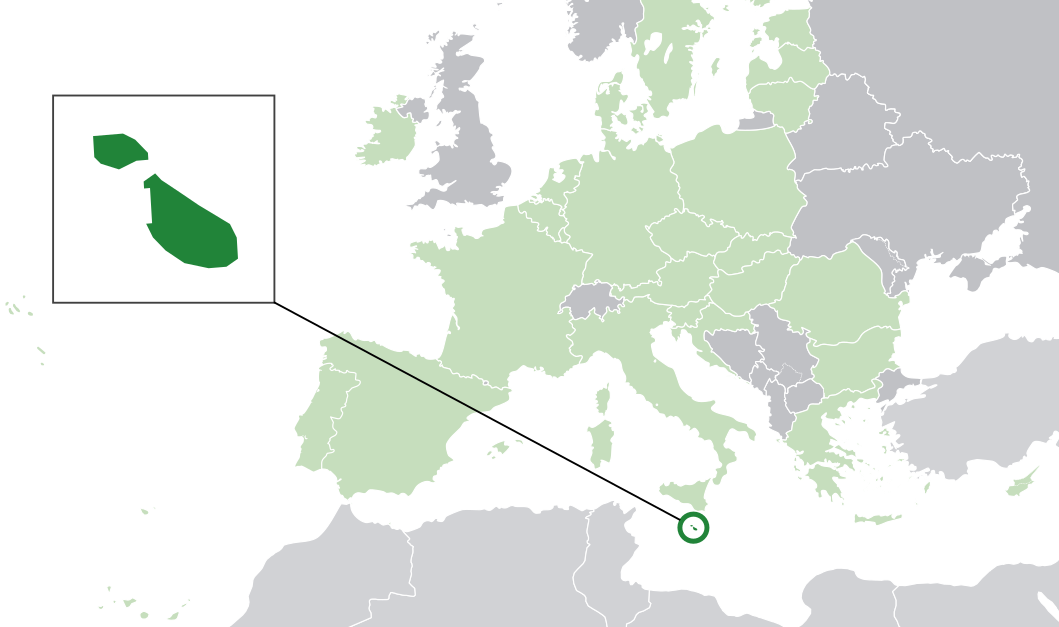AN INTRODUCTION
Malta is an island country in the European Union consisting of an archipelago in the Mediterranean Sea, lying 80 km (50 mi) south of Sicily (Italy), 284 km (176 mi) east of Tunisia, and 333 km (207 mi) north of Libya. The official languages are Maltese and English, and 66% of the current Maltese population is at least conversational in the Italian language.
“The Maltese language is a colourful reminder of Malta’s chequered and amazing history.”

With a population of about 516,000 (excluding the tourists and expats) over an area of 316 km2 (122 sq mi), Malta is the world’s tenth-smallest country and the fourth most densely populated sovereign country. Its capital is Valletta, the smallest national capital in the European Union by area and population. According to the data from 2020 by Eurostat, the Functional Urban Area and metropolitan region covered the whole island and had a population of 480,134. According to the United Nations, ESPON and EU Commission, “the whole territory of Malta constitutes a single urban region”. Malta is increasingly referred to as a city-state and listed in rankings concerning cities or metropolitan areas. Malta is one of the two island countries in the Mediterranean, along with Cyprus.
Malta became a British colony in 1813, serving as a way station for ships and the headquarters for the British Mediterranean Fleet. It was besieged by the Axis powers during World War II and was an important Allied base for operations in North Africa and the Mediterranean. The British parliament passed the Malta Independence Act in 1964, giving Malta independence from the United Kingdom as the State of Malta, with Elizabeth II as its queen. The country became a republic in 1974. Since independence, it has been a member state of the (British) Commonwealth of Nations and the United Nations and joined the European Union in 2004.
Malta has had Christians since the time of Early Christianity, and Christianity has been the dominating faith ever since, if not for the Arab period during the early Middle ages, where Malta, like elsewhere in Southern Europe during Arab rule (such as Spain or Sicily). Muslim rule ended with the Norman invasion of Malta by Roger I in 1091. Today, Catholicism is the state religion, but the Constitution of Malta guarantees freedom of conscience and religious worship.
The Maltese Language

The Maltese language is a colourful reminder of Malta’s chequered and amazing history.

